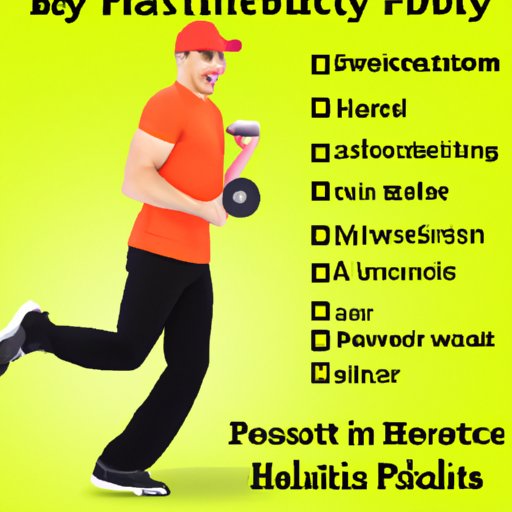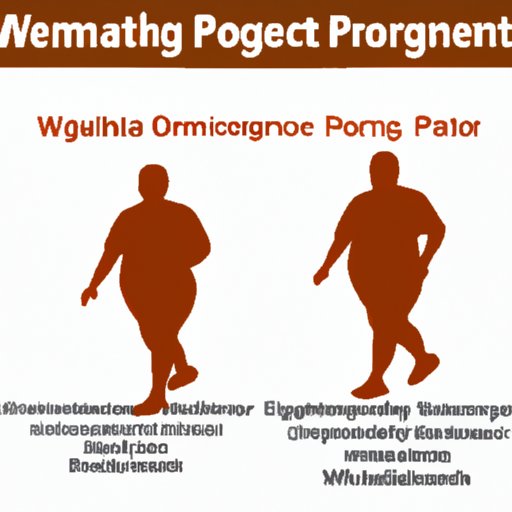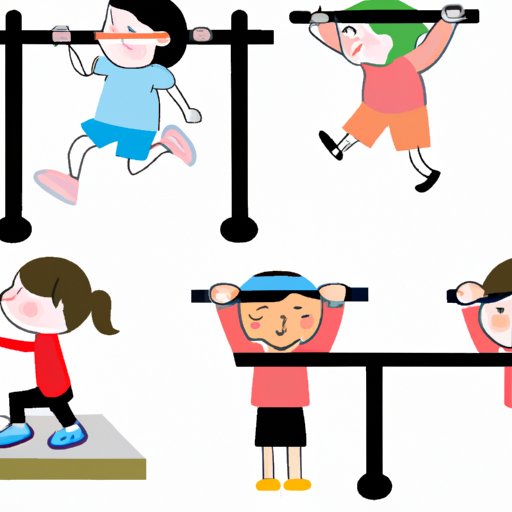Introduction
Physical activity is any form of movement that requires energy expenditure. This can include walking, running, biking, swimming, dancing, playing sports, or any other type of exercise. Physical activity has many benefits for both mental and physical health, as well as economic and social benefits.
Why Is Physical Activity Important?
Physical activity is essential for maintaining a healthy lifestyle. Regular physical activity has been proven to reduce the risk of chronic diseases such as cancer, diabetes, heart disease, stroke, and depression. According to the World Health Organization (WHO), “At least 60 minutes of physical activity a day in children and adolescents, and at least 150 minutes spread throughout the week in adults, should be encouraged.”

Health Benefits of Physical Activity
Physical activity is beneficial for overall health. Here are some of the most significant health benefits of regular physical activity:
Improved Cardiovascular Health
Physical activity helps to improve cardiovascular health by helping to reduce high blood pressure, cholesterol, and triglyceride levels. According to a study published in the Journal of the American College of Cardiology, “regular physical activity can reduce the risk of coronary heart disease by up to 25%.”
Reduced Risk of Cancer, Diabetes and Other Diseases
Regular physical activity can also reduce the risk of certain types of cancer, such as breast and colon cancer. Additionally, physical activity can reduce the risk of developing type 2 diabetes and other chronic diseases.
Strengthened Bones and Muscles
Physical activity helps to strengthen bones and muscles, which can help to prevent osteoporosis and falls. A study published in the American Journal of Preventive Medicine found that physical activity can reduce the risk of fractures in older adults by 40%.
Connection Between Physical Activity and Mental Health
Physical activity has also been shown to have positive effects on mental health. Research has found that regular physical activity can help with stress relief, improving mood, and increasing self-esteem.
Stress Relief
Physical activity can help to reduce stress and anxiety by releasing endorphins, which are hormones that make you feel good. According to a study published in the journal Psychotherapy and Psychosomatics, “regular physical activity can reduce stress and lead to improved mental health.”
Improved Mood
Physical activity can also help to improve mood by reducing symptoms of depression and anxiety. A study published in the British Journal of Sports Medicine found that regular physical activity can reduce the symptoms of depression by up to 30%.
Increased Self-Esteem
Physical activity can also help to increase self-esteem. According to a study published in the journal Health Psychology, “regular physical activity is associated with increased self-esteem, self-efficacy, and greater life satisfaction.”

Impact of Physical Activity on Weight Management
Physical activity can also help with weight management. Regular physical activity can help to burn calories, build muscle, and increase metabolism, which can help with weight loss or maintenance.
Burning Calories
Physical activity can help to burn calories, which can lead to weight loss. According to the Centers for Disease Control and Prevention (CDC), “adults who engage in at least 150 minutes of moderate-intensity aerobic activity per week are likely to experience health benefits and may prevent weight gain.”
Building Muscle
Physical activity can also help to build muscle, which can help with weight maintenance. According to the Mayo Clinic, “resistance training can help to increase muscle mass and strength, which can help to maintain a healthy weight.”
Increasing Metabolism
Physical activity can also help to increase metabolism, which can help to burn more calories even when at rest. According to the National Institutes of Health (NIH), “regular physical activity can increase your metabolic rate, which can help you burn more calories.”
Success Stories of People Who Have Improved Their Health Through Physical Activity
There are countless stories of people who have improved their health through physical activity. For example, one woman was able to lose 50 pounds and keep it off for four years by adding walking to her daily routine. Another man was able to stop taking medication for his diabetes by incorporating strength training into his exercise regimen. These stories demonstrate the power of physical activity in improving overall health.
Importance of Physical Activity for Children’s Development
Physical activity is also important for children’s development. Regular physical activity can help to increase physical strength, improve coordination and balance, and enhance cognitive abilities. According to the American Academy of Pediatrics, “children and adolescents should participate in at least 60 minutes of physical activity each day.”
Economic Benefits of Physical Activity
Physical activity also has economic benefits. Regular physical activity can lead to lower healthcare costs, increased productivity, and a reduction in absenteeism. According to a study published in the International Journal of Environmental Research and Public Health, “regular physical activity can lead to cost savings of $500 per person per year.”

Tips on How to Incorporate Physical Activity Into Your Daily Routine
If you want to start incorporating physical activity into your daily routine, here are some tips to get started:
Choose Activities You Enjoy
First, choose activities that you enjoy. This could include walking, running, biking, swimming, dancing, playing sports, or any other type of exercise that you find enjoyable.
Set Realistic Goals
Next, set realistic goals for yourself. Start small and gradually increase the amount of physical activity you do over time. Don’t try to do too much too soon.
Make Time for Physical Activity
It’s also important to make time for physical activity. Set aside a specific time each day to do some form of physical activity.
Get Support From Friends and Family
Getting support from friends and family can also be helpful. Ask them to join you in your physical activity so that you can stay motivated.
Track Your Progress
Finally, tracking your progress can help you stay motivated. Use an app or journal to track your physical activity and document your results over time.
Conclusion
In conclusion, physical activity is essential for maintaining a healthy lifestyle. Regular physical activity can provide numerous health benefits, from improved cardiovascular health and reduced risk of disease to increased self-esteem and better management of weight. Additionally, physical activity has economic benefits, such as lower healthcare costs and increased productivity. To get started, choose activities you enjoy, set realistic goals, make time for physical activity, get support from friends and family, and track your progress. With these tips, you can start incorporating physical activity into your daily routine and reap the many benefits it has to offer.
(Note: Is this article not meeting your expectations? Do you have knowledge or insights to share? Unlock new opportunities and expand your reach by joining our authors team. Click Registration to join us and share your expertise with our readers.)
